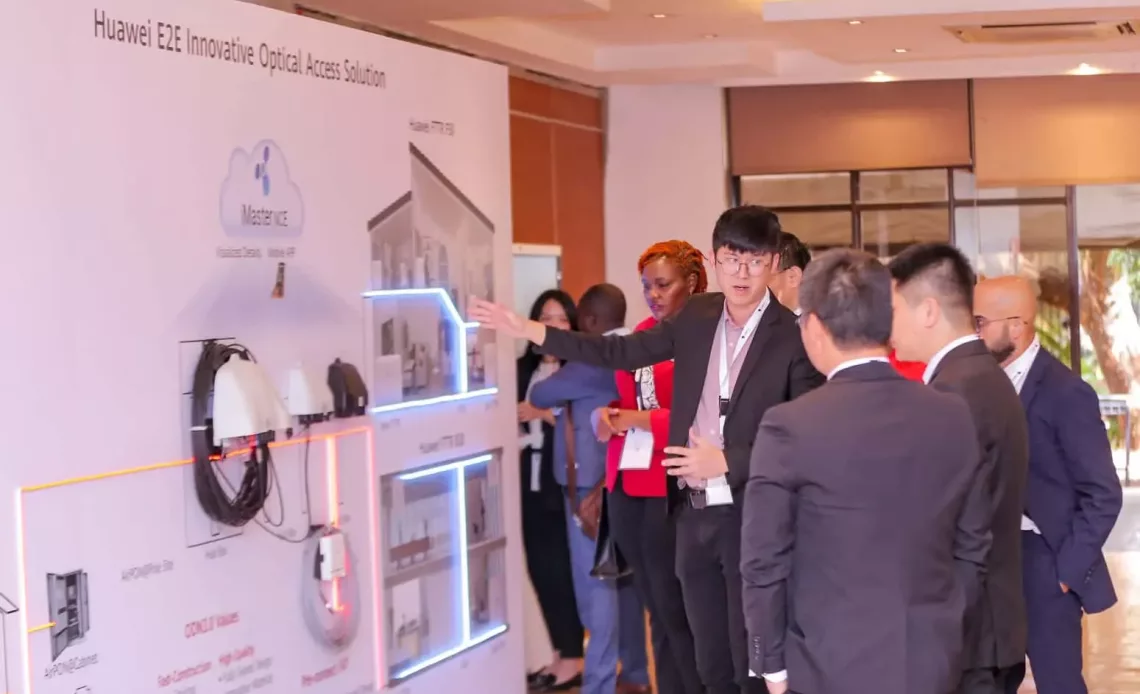
Huawei Kenya has announced that it will step up residential internet fiber and connect more homes to the Internet.
Speaking during the Conext Conference hosted by TESPOK in Nairobi, Tony Li, Chief Technology Officer of Huawei Southern Africa Region said that scaling up internet access for Kenyans using Fixed Wireless Access, mobile technologies and Fixed Networks, using fiber, are critical to deepening digital inclusion and expanding the country’s participation in the global digital economy. The firm’s Fiber To The Room (FTTR) program is expected to double the number of Kenyan homes with internet connectivity from the current level where it is just under 250,000 in total.
The aspiration is to get to the innovation of 1 Gbps in every room, targeting homes with large families and houses with multiple rooms and levels, with support for up to 16 rooms and responding to the diverse functional needs of each household such as watching movies in the living room, while people are working, video conferencing, gaming, posting to social media or even livestreaming in their private rooms.
“Leveraging on the new building code that requires all developments to be fiber ready, our set up will involve placing Wi-Fi enabled optical network terminals (ONT) in every room of an apartment unit. This way, Fiber To The Room (FTTR) allows for consistent internet coverage throughout the home, ensuring uninterrupted high-speed connectivity regardless of which room one is in,” he said.
The Fiber to the Room (FTTR) all-optical Wi-Fi solution directly extends optical fibers to each room, achieving gigabit coverage everywhere at home. It covers Huawei’s innovative photoelectric composite micro-optical cable and FTTR construction solution which represents a quantum leap in cutting-edge home networking, leveraging the power of fibers characterized by their compact size, feather-light build, virtually eternal service life, immunity to electromagnetic interference, and the limitless potential for bandwidth expansion.
In a world where seamless connectivity is paramount, FTTR emerges as the ultimate solution to the challenge of delivering flawless home network coverage down to every corner. Residents can now enjoy a fresh and compelling alternative for their networking needs including demands for home services such as online education, video streaming, and online gaming, which has recently increased sharply.
Tony pointed out that partnership with the government was crucial to delivering these modern experiences to Kenyans.
“We believe the government has an important role to play in 3 particular areas, namely requiring all new buildings to be fiber-ready, with the manholes and ducts to make it easier and quicker to install fiber, and also enhancing competition in the market. The proposed Building Code is a great step in this direction. Secondly, it is important to reduce fiber cuts through coordination with roads and utility agencies as well as using enforcement of relevant laws. Finally, we need to reduce the costs for wayleaves, speed up approvals, and provide access to other shared infrastructure such as power poles or road ducts,” he added.
The FTTR market consists of two major segments: The first is indoor optical cable installation provided by construction companies and interior design companies. The second is indoor optical cable installation provided by carriers.
With the advent of cloud computing, virtual reality, gaming, telehealth, remote services, and high capacity services not yet imagined, Kenyans must grapple with updating its Internet’s infrastructure for the 21st century.
Also Read: Huawei Boosts Kenya’s Esports Ambitions

